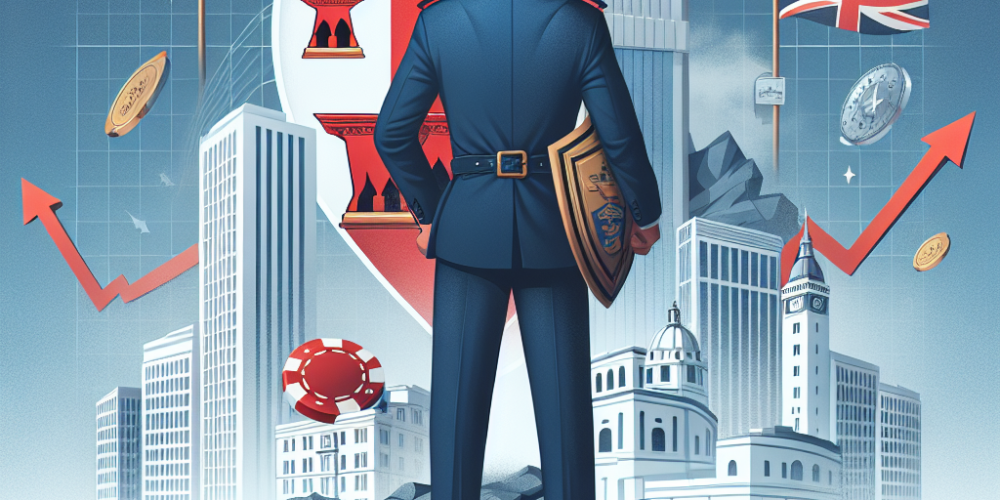Gibraltar.- Andrew Lyman, the Gibraltar gambling commissioner, has taken the unusual step of publicly entering the debate over an expected increase in gambling taxes in the UK. Despite typically remaining neutral as a regulator, Lyman expressed concerns on LinkedIn regarding the potential impacts of a significant tax hike proposed by various UK think tanks, including the Social Market Foundation (SMF) and the Institute for Public Policy Research (IPPR).
The proposed increase would see the Remote Gaming Duty rise from 21 to 50 per cent. This proposal has garnered support from some UK political figures, such as former Prime Minister Gordon Brown, who believe that gambling companies have the capacity to absorb the tax increase without major repercussions. However, Lyman, who also serves as a non-executive director of the Independent Betting Adjudication Service (IBAS), disagrees with this perspective.
Lyman emphasized that the suggestion of the gambling industry being able to handle such a steep rise without suffering significant structural impact and loss of profit is misleading. He argued that the sector operates within tight financial margins, and any substantial increase could have severe consequences on its economic contributions. He indicated that a moderate increase of “no more than 4-5 percentage points” for Remote Gaming Duty and even less for General Betting Duty would be more prudent to mitigate serious adverse effects.
Beyond a certain threshold, Lyman warned, the industry would experience “genuine pain,” potentially stifling growth and reducing tax revenues in the mid-to-long term, an outcome contrary to the goals of the proposed tax hike. He expressed a clear concern about reaching a tipping point, especially as the Remote Gaming Duty approaches 30 per cent, where the sector might face irreversible damage. The phrase “once the regulated sector is gone, it’s gone!” reflects his apprehension over the potential for regulatory degradation.
As the UK prepares for Chancellor Rachel Reeves’ Autumn Budget presentation on November 26, anticipation builds around her expected announcement of a gambling tax hike. Support from the Treasury Committee, along with backing from many Labour and Liberal Democrat MPs, suggests that the proposal is likely to move forward. Reeves has indicated her belief in the rationale for increasing gambling taxes, further solidifying the likelihood of a policy shift.
Recent data from the Gambling Commission reveals a nuanced picture of the gambling sector’s current state. While British online gross gambling yield (GGY) increased by 8 per cent in Q2, reaching £1.42 billion, retail betting premises experienced a 5 per cent decline, with GGY dropping to £508 million. This mixed performance highlights the varied dynamics within the gambling industry and the potential challenges it might face under heavier tax burdens.
Despite Lyman’s warnings, proponents of the tax increase argue that higher duties are necessary to address broader social issues associated with gambling. They propose that increased tax revenue could be redirected towards mitigating the negative impacts of gambling addiction and enhancing responsible gambling initiatives. This perspective suggests that while the industry might face financial challenges, the societal benefits could outweigh the economic costs.
However, critics of the tax increase stress that such a move could drive consumers towards unregulated markets, where protections are weaker, and economic benefits are lost to offshore operators. This could lead to a reduction in consumer safety and a decline in tax revenues as legal operators struggle to compete.
The debate over the UK gambling tax hike underscores a broader dilemma facing regulators: balancing the financial health of the gambling industry with social responsibility and public welfare. As the government weighs its options, the sector watches closely, aware that the outcomes could reshape the landscape of UK gambling.
In conclusion, the impending decision on the gambling tax rate reflects a complex interplay of economic, social, and political factors. While some advocate for substantial increases to address social concerns, others, like Lyman, caution against moves that could undermine the sector’s viability. As the debate continues, the government’s final decision will likely have significant implications for the future of gambling in the UK.

David Garato is a luminary in gaming journalism, renowned for peeling back the curtain on the gaming world with his witty and insightful commentary. A decade into weaving stories from the pixelated edges of indie games to the expansive universes of AAA titles, David’s work is a thrilling blend of analysis and adventure. When not writing, he’s live-streaming, sharing his gaming exploits with an engaged and growing audience. David doesn’t just write about games; he lives them, making him a trusted guide in the gaming community.
















